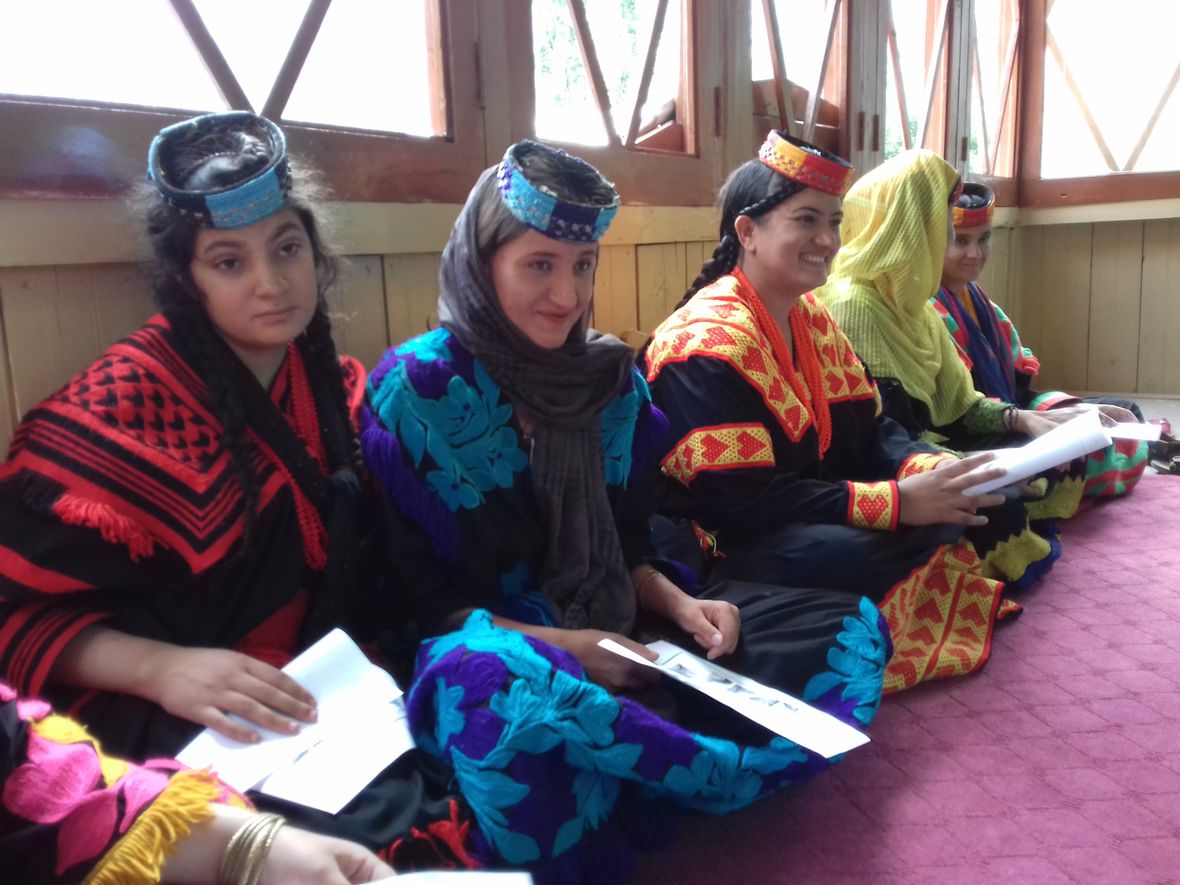In July 2018, PWP joined hands with the local Community Based Organisations (CBOs) and launched its seventeenth Area Water Partnership (AWP) the Chitral AWP with the participation of the Union Council members of Garamchashma town in Chitral District, local communities and the members of CBOs created under Aga Khan Rural Support Programme (AKRSP).
Khyber-Pakhtunkhwa Province having a population of 414,000. Chitral is among the most elevated districts of the world, clearing from 1,094 meters at Arandu to 7,726 meters at Tirichmir, and pressing more than 40 crests in excess of 6,100 meters in tallness. The territory of Chitral is exceptionally sloping and Tirich Mir (25,289 feet) the most elevated pinnacle of the Hindu Kush, ascends in the north of the district. Chitral is connected to the rest of Pakistan by two major road routes that closed during winter - has pressed the construction of Lowari Tunnel with 10.5 km in length to provide all year access to the district. Chitral is also the home to Kalash tribe, who lives in Bumburet and two other remote valleys in southwest of Chitral town.
During the visit, PWP team continued their engagement and support to the communities in Chitral with special focus on youth and women. They have conducted several workshops, 1) the youth engagement in water related initiatives in collaboration with a woman organization IZH, Chitral and 2) workshops on Hygiene and Water Conversation Techniques in Different Villages of Kalash Valley in collaboration with Krakal 1 Khawateen Tanzeem. Further, the team met with Local Stakeholders in-order to expand and strengthen the network of newly established AWP and to ensure the sustainability of the initiative. These discussions expressed the need for instigating a separate AWP for Kalash Valley, where the team laid the foundation.
Dr Pervaiz Amir, Director, PWP highlighted the importance of youth engagement in water related initiatives in the discussions held at Garamchashma town in Chitral. The youth in different villages of Kalash were exposed to modern concepts of water management, water saving, water purification, sanitation and hygiene. Leaflets on “Hand Washing” were distributed and the participants of the trainings were gifted with personal hygiene kits having soap, toothbrushes, toothpastes and a nail cutter.
Highlights of the discussions
The discussions held with the community groups including youth and women were highly enlightening. Some of the common issues raised on water and sanitation in the area were,
- The area is facing adversities of climate change i.e. rapid temperature rise and reduced water levels.
- Water quality is deteriorating and water borne diseases are on the rise
- There is a need for guidance on water testing and facilities for field testing kits
- There is an urgent need for mass awareness on hygiene and water conservation among villages - audio visual materials are recommended as best tools
- Regular communication on preferable approaches for procuring clean drinking water in highlands is needed.
- Building single-sex toilets for women was recommended.
Way forward
The newly established AWPs are encouraged to follow up and to continue the dialogue with communities in the valley through workshops and demonstrations as suggested during the community and stakeholder discussions. Further, PWP shall always be prepared to play the role of supporter and mediator between AWPs, communities, stakeholders and other current and potential networking partners, for better management of water.
